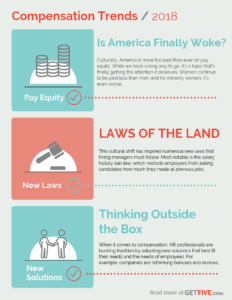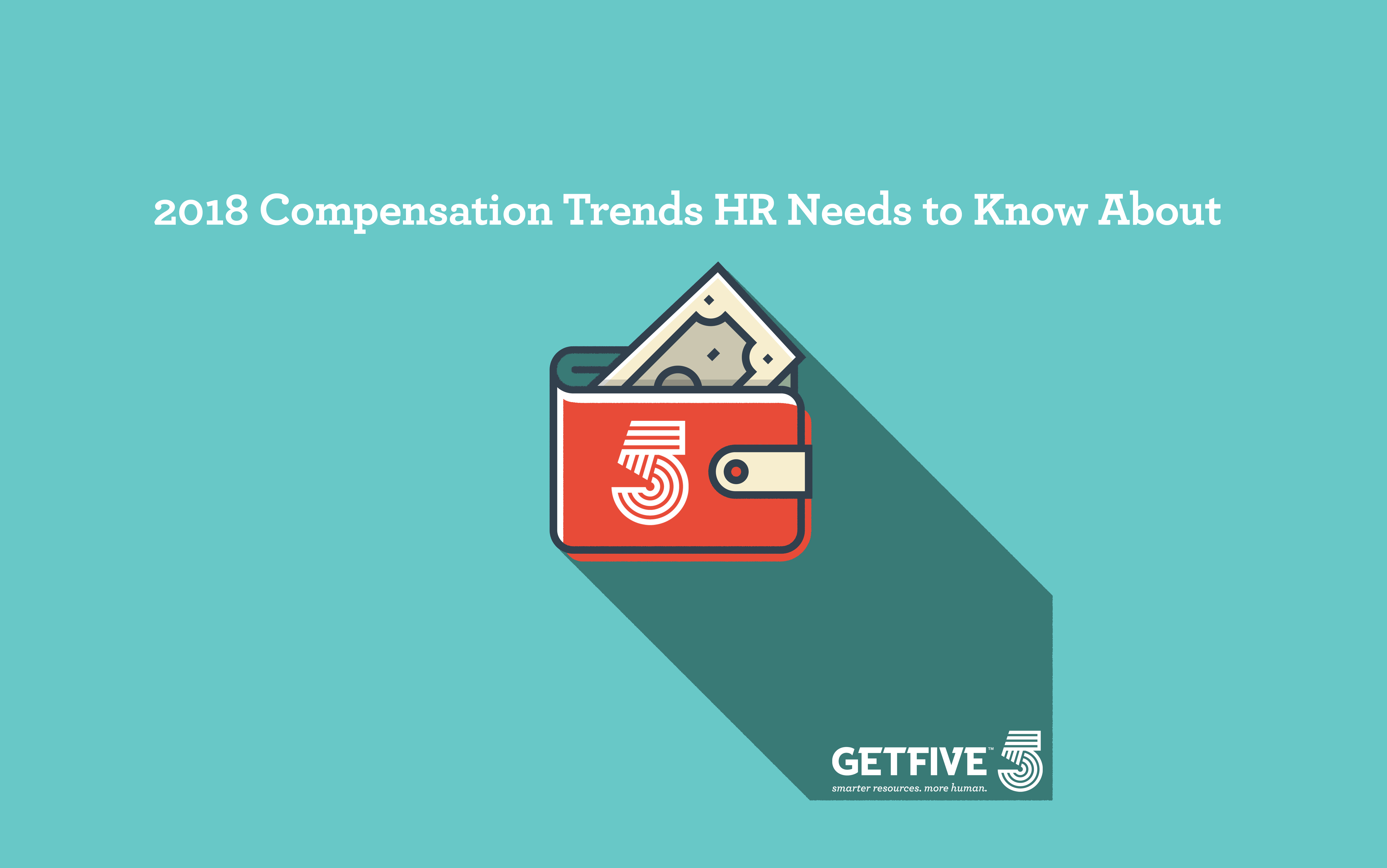Being a hiring manager has always involved complex decisions, but determining compensation didn’t used to be one of them. In fact, salary was pretty cut and dried and rarely a topic that caused you to break a sweat.
Today, the compensation landscape is evolving. New legislation, paired with cultural shifts, has changed the way HR and hiring managers approach salary offers and negotiations. It’s even extended to current employees’ compensation and raises.
Bottom line: It’s far from cut and dried, and certainly can put you in some hot water if you don’t pay attention (just look at Google and Uber last year).
Is America Finally Woke?
Culturally, America is more focused than ever on pay equity. While we have a long way to go, it’s a topic that’s finally getting the attention it deserves. Women continue to be paid less than men, and for minority women, it’s even worse. “Equal pay for equal work” is the mantra from the manufacturing line to the C-suite. Some of the world’s largest and most innovative companies are being called out for unfair pay practices. Some have had to settle expensive lawsuits. Others have suffered a tarnished brand image. It appears our ears and eyes are finally open.
Laws of the Land
This cultural shift has inspired numerous new laws that hiring managers must follow. Most notable is the salary history ban law, which restricts employers from asking candidates how much they made at previous jobs. New York City recently joined states like California and Massachusetts that already have laws against inquiring about past salaries, and many experts predict more states will join the movement in 2018. The main goal of the laws: eliminate the cycle of pay inequity. Now, you must figure out suitable compensation for the role, not base decisions on how much a candidate made in the past.
Thinking Outside the Box
When it comes to compensation, HR professionals are bucking tradition by adopting new solutions that best fit their needs and the needs of employees. For example, companies are rethinking bonuses and reviews. Variable pay that offers rewards for meeting individual, team, and organizational goals may be a suitable alternative to annual raises. The dreaded (and often ineffective) annual performance review is getting revised to provide more positive praise of employees. This provides a morale boost, plus the theory is that critiques and tougher topics are more effectively handled in real time.

These are some of the most notable ways the compensation landscape is changing, but 2018 is sure to bring many more. From compensating contingent workers to handling increasing minimum wages, there’s plenty to keep you on high alert in the new year.









